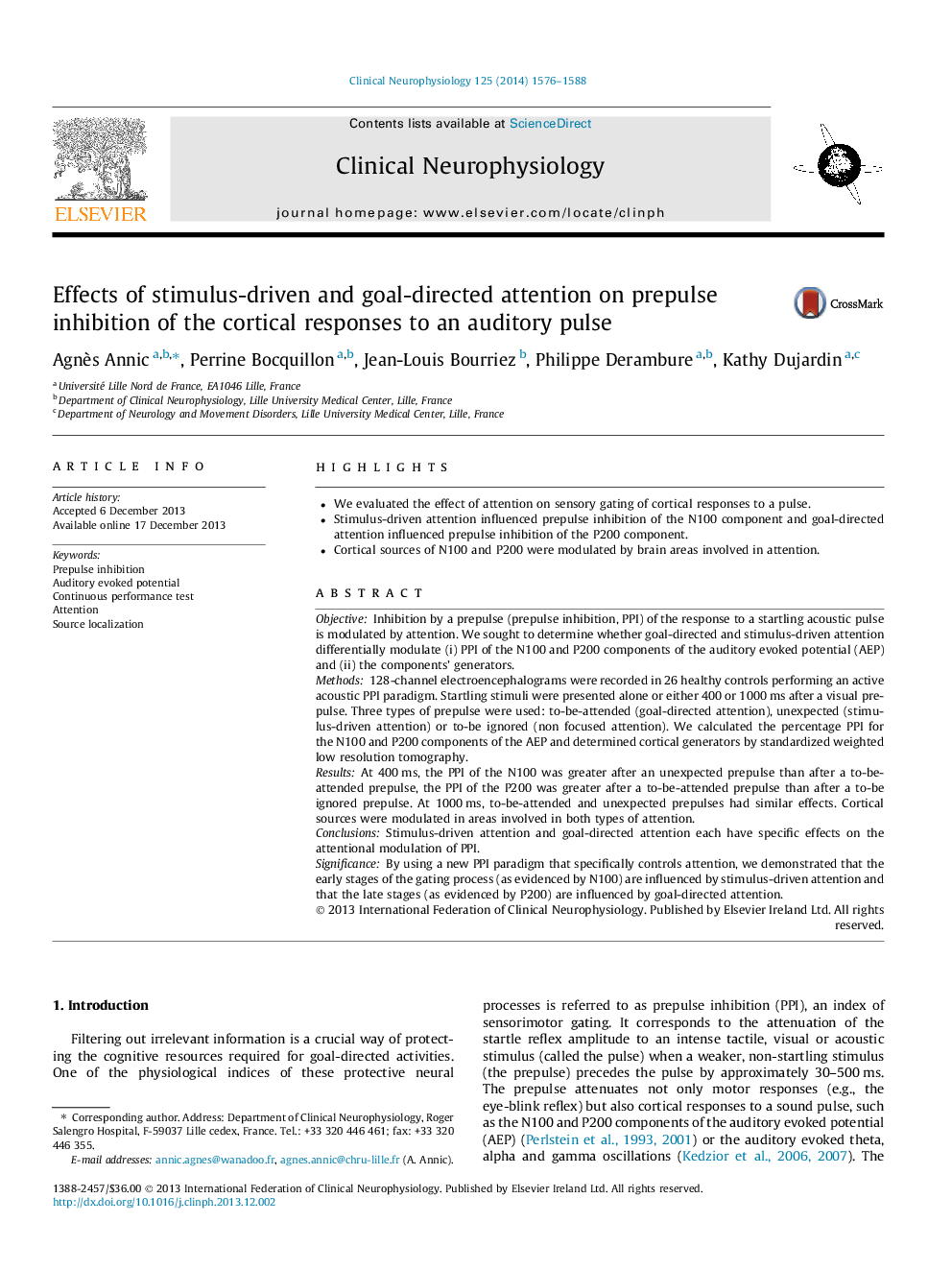| Article ID | Journal | Published Year | Pages | File Type |
|---|---|---|---|---|
| 3043485 | Clinical Neurophysiology | 2014 | 13 Pages |
•We evaluated the effect of attention on sensory gating of cortical responses to a pulse.•Stimulus-driven attention influenced prepulse inhibition of the N100 component and goal-directed attention influenced prepulse inhibition of the P200 component.•Cortical sources of N100 and P200 were modulated by brain areas involved in attention.
ObjectiveInhibition by a prepulse (prepulse inhibition, PPI) of the response to a startling acoustic pulse is modulated by attention. We sought to determine whether goal-directed and stimulus-driven attention differentially modulate (i) PPI of the N100 and P200 components of the auditory evoked potential (AEP) and (ii) the components’ generators.Methods128-channel electroencephalograms were recorded in 26 healthy controls performing an active acoustic PPI paradigm. Startling stimuli were presented alone or either 400 or 1000 ms after a visual prepulse. Three types of prepulse were used: to-be-attended (goal-directed attention), unexpected (stimulus-driven attention) or to-be ignored (non focused attention). We calculated the percentage PPI for the N100 and P200 components of the AEP and determined cortical generators by standardized weighted low resolution tomography.ResultsAt 400 ms, the PPI of the N100 was greater after an unexpected prepulse than after a to-be-attended prepulse, the PPI of the P200 was greater after a to-be-attended prepulse than after a to-be ignored prepulse. At 1000 ms, to-be-attended and unexpected prepulses had similar effects. Cortical sources were modulated in areas involved in both types of attention.ConclusionsStimulus-driven attention and goal-directed attention each have specific effects on the attentional modulation of PPI.SignificanceBy using a new PPI paradigm that specifically controls attention, we demonstrated that the early stages of the gating process (as evidenced by N100) are influenced by stimulus-driven attention and that the late stages (as evidenced by P200) are influenced by goal-directed attention.
